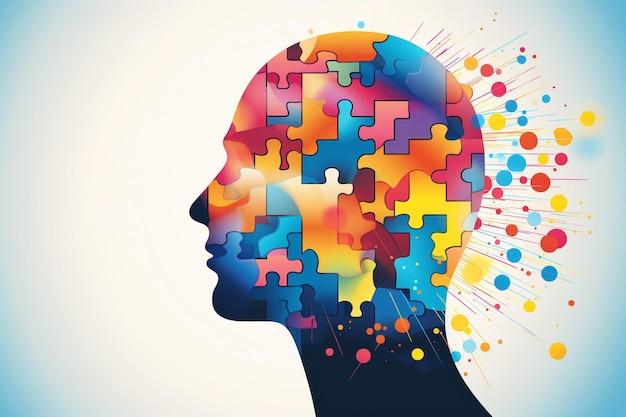Philosophy and education are two disciplines that may not appear to have an obvious connection at first glance. However, delving deeper into their relationship reveals a profound impact philosophy has on education, shaping its goals, methods, and values. In this blog post, we will explore the function of philosophy in education, examining how it influences the teaching and learning process.
But before we dive into the function of philosophy in education, let’s first understand what philosophy is as a process. Philosophy involves the systematic study of fundamental questions about existence, knowledge, ethics, and more. It encourages critical thinking, reasoned arguments, and a quest for understanding the world around us.
So, what is the most dominant philosophy of education? How do educators incorporate their own philosophies about teaching and learning? And what is the relationship between education and philosophy anyway? These are the questions we will explore in this blog post, as we uncover the need and importance of teaching philosophy of education. Join us on this philosophical journey as we uncover the function of philosophy in education in the year 2023.

The Role of Philosophy in Education
Exploring the Significance of Philosophy in Shaping Education
Philosophy and education have been intimately intertwined throughout history, like two peas in a rather philosophical pod. But what exactly is the function of philosophy in education? Well, dear reader, prepare to have your mind blown as we delve into this profound subject with a dash of humor and plenty of informative tidbits.
Unpacking the Purpose of Philosophy
Philosophy, that formidable beast of thought, serves as the guiding light that illuminates the path of education. It helps us question the very foundations of knowledge and inspires teachers and students alike to ponder the profoundest of inquiries. Without philosophy, education would be like a ship adrift in a vast ocean, lacking direction and purpose.
Illuminating the Pursuit of Knowledge
Philosophy lends a hand in shaping the objectives and goals of education. It prompts us to ask important questions such as, “What is the purpose of education?” and “What kind of knowledge is worth pursuing?” By engaging in philosophical inquiry, educators gain insight into the values, ethics, and beliefs that underpin their teaching methods.
Creating Critical Thinkers
One of the key functions of philosophy in education is to cultivate critical thinking skills. Philosophy encourages students to challenge assumptions, investigate different perspectives, and develop their own well-reasoned arguments. It empowers them to analyze complex issues, rather than accepting information at face value, transforming them into astute skeptics armed with the formidable power of skepticism.
Enhancing Ethical Awareness
Philosophy also plays a pivotal role in fostering ethical awareness within the realm of education. It prompts teachers and students to grapple with moral quandaries, exploring questions like, “What is the right course of action in this situation?” and “How do we navigate the maze of values and ethical dilemmas in education?” By engaging with philosophical thought, educators can instill a sense of moral responsibility in their students, preparing them to be ethical citizens of the world.
Encouraging a Love for Wisdom
Education without philosophy would be like a sandwich without the layers of delectable fillings. Philosophy is the mayo that brings all the flavors together. It instills a sense of wonder, curiosity, and love for wisdom in both teachers and students. It invites us to explore the mysteries of existence, ponder the nature of reality, and delve into the realms of knowledge with fervor and excitement.
Embracing the Spirited Dance of Philosophy and Education
So, my dear reader, it is clear that the function of philosophy in education is far from trivial. It sparks intellectual curiosity, fosters critical thinking, encourages ethical awareness, and engenders a love for wisdom. As we navigate the ever-changing landscape of education, let us not forget the profound impact that philosophy has on shaping our collective pursuit of knowledge and understanding.
Now, go forth, dear reader, armed with a deeper understanding of the function of philosophy in education. Let your mind be guided by the spirit of inquiry and the wonders of philosophical thought. And remember, the journey of education is all the more enthralling with a touch of philosophical flair.

FAQ: What is the Function of Philosophy in Education?
Welcome to our comprehensive FAQ-style guide on the function of philosophy in education. We’re here to answer all your burning questions and shed light on this fascinating topic. So, sit back, relax, and let’s dive in!
What is Philosophy as a Process
Philosophy, in the context of education, is not just about deep thoughts and pondering the meaning of life. It is an ongoing process that encourages critical thinking, reflection, and the exploration of fundamental questions. Through philosophy, educators and students engage in lively discussions and debates, seeking to understand the world around them and develop a deeper sense of meaning and purpose.
What is the Most Dominant Philosophy of Education
The most dominant philosophy of education is the perennialism. Perennialism believes that education should focus on timeless ideas and concepts, such as truth, beauty, and justice. Proponents of perennialism argue that these ideas form the foundation of a well-rounded education and provide students with the tools they need to navigate the complexities of the world.
What is Your Philosophy about Teaching and Learning
Imagine this: teaching and learning are like a dance. As an educator, my philosophy is to create an environment that encourages students to twirl, spin, and leap with excitement as they explore new ideas and concepts. I believe in fostering curiosity, nurturing creativity, and celebrating the joy of learning. Together, let’s take a dance through the wonders of education!
What is the Relationship Between Education and Philosophy
Education and philosophy are tightly intertwined, like a pair of synchronized swimmers in a dazzling performance. Philosophy provides the guiding principles for education, shaping the curriculum, teaching methods, and the overall educational experience. In turn, education breathes life into philosophy, as it offers practical applications and real-world contexts for philosophical ideas.
On What is Based the Need for Teaching Philosophy of Education
Ah, the need for teaching philosophy of education! It’s like an oasis in the desert, quenching our thirst for knowledge and purpose. This need arises because philosophy helps us make sense of the complex world of education. It allows educators to critically examine the underlying assumptions, values, and goals of education, ensuring that teaching is grounded in a solid philosophical foundation.
What is the Function of Philosophy in Education
Ah, the pièce de résistance! The function of philosophy in education is like the secret ingredient that makes a dish extraordinary. It adds depth, perspective, and meaning to the educational experience. Philosophy helps students develop critical thinking skills, encourages open-mindedness, and fosters a love for lifelong learning. It sparks intellectual curiosity, helps students find their values, and equips them with the tools to navigate the ever-changing world with wisdom and grace.
In conclusion, philosophy serves a vital function in education, shaping curriculum and teaching methods, guiding educators and students alike to explore the profound questions of humanity. It is an ongoing process, like a dance that enriches the educational experience and ignites a passion for learning. So, let’s embrace the power of philosophy in education and embark on a fascinating journey of intellectual discovery!
